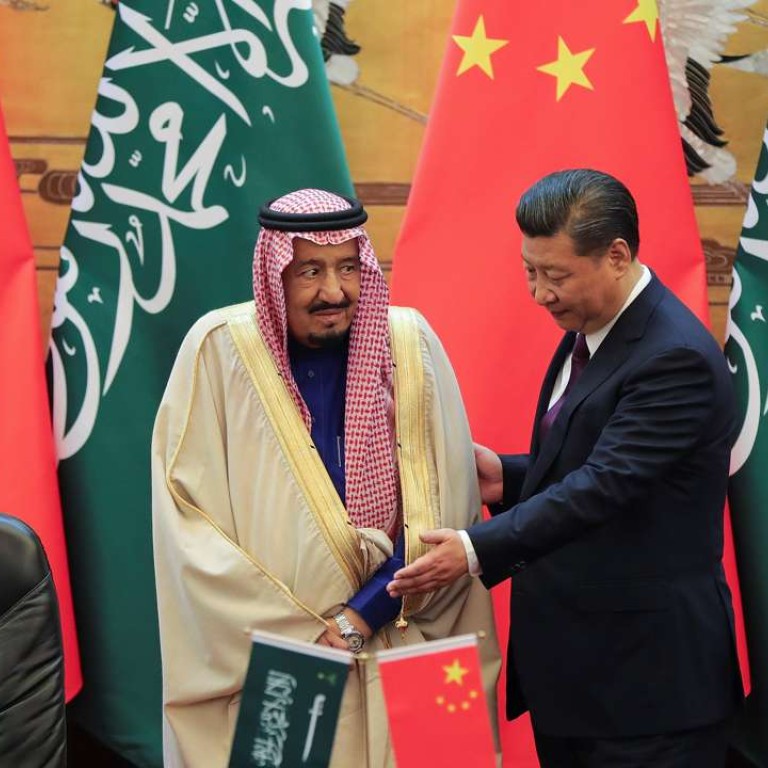
Building strong ties with Saudi Arabia a sensible strategy
But the labyrinth that is Middle Eastern politics will require China to take a strike a careful balance
Oil, trade and investment have been the focus of the visit to China by Saudi Arabia’s King Salman. But as mutual as those benefits may be, there is much more to the warming relationship. Both nations have an interest in stronger political and military ties and only through such high-level meetings can goals be articulated and set. For Beijing, it is also about taking a more active place in global leadership.
President Xi Jinping’s friendly welcome and the US$65 billion worth of deals that were signed spoke volumes about hopes and aspirations. Salman’s visit was a follow-up to the Chinese leader’s landmark trip last year to the Middle East’s most influential Muslim powers, Saudi Arabia, Egypt and Iran. China wants to play a bigger role in the region and seeks stability in countries involved in its “One Belt, One Road” trade initiative. Saudi Arabia, oil-rich and influential among Sunni Muslim governments, is important to those aims.
Amid mounting global challenges, both nations share a similar vision and closer relations make sense. China is Saudi Arabia’s biggest oil customer and the kingdom, trying to diversify an economy overly dependent on revenue from energy resources, sees investment from Asia, and China in particular, as the way forward. Salman’s month-long tour of six Asian countries with an entourage of more than 1,500, including 800 businessmen, confirmed his country’s strategy. The visit to Beijing of so high profile a delegation marked the start of a new era of improved relations with China.
Motivating the Saudi push are clouded relations with the US, once its strongest Western ally. Rocky ties with former US president Barack Obama’s administration and the uncertainty posed by his successor, Donald Trump, have prompted exploration of new partnerships. China’s energy and trade links, its rise and growing influence and economic and strategic ambitions make for an ideal alliance. But for Beijing, that also requires a balance to be struck; it has good relations with all Mideast countries, Riyadh’s arch-enemy, Shi’ite Muslim-majority Iran, among them.
Bringing stability to the Middle East is essential for success of the belt and road project. But civil war-torn Syria and Yemen, countries with which both Saudi Arabia and Iran have political, religious and military interests, are sticking points. Beijing has used its power of veto as a permanent member of the UN Security Council six times to block resolutions against Syrian leader Bashar al-Assad, whom it supports along with Russia and Iran. Saudi Arabia is trying to force his removal by backing rebel groups. China’s building greater cooperation with Saudi Arabia is a good strategy, but negotiating Mideast peace is a less straightforward matter.

